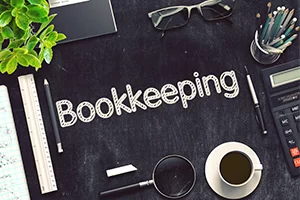
Business Advisory Services
Everything you need to help you launch your new business entity from business entity selection to multiple-entity business structures.
Table Of Contents
 By Jason Watson, CPA
By Jason Watson, CPA
Posted Saturday, September 28, 2024
WCG specializes in real estate investors and as such we provide accounting services for rental properties. Rental properties are a business like any other, and the proper tracking of revenue and more importantly the associated expenses are essential. The bookends to the varying service levels are your common single-family rental (SFR) home and that large commercial property with several tenants. That’s the X axis. The Y axis becomes tax return complexity based on number of owners, number of activities (rentals) or both.
Most of our real estate property owners with 1-5 rentals usually opt for annual compliance bookkeeping as described above. While you could record and present routine rental property transactions using QuickBooks Online and generate pretty financial statements… and while us nerdy accountants love formalized accounting platforms… this might be akin to killing a housefly with a sledgehammer. Yes, the fly is dead, but did you need such a massive swatter?
Once you start hitting 6 or more rentals, you add complexity based on volume alone. In these situations, we strongly suggest quad-monthly accounting or begrudgingly annual accounting. However, compliance bookkeeping is not available. Most of our real estate investors with more then 20 rentals leverage bi-monthly accounting services simply because of the volume of transactions.
Commercial real estate is like a snowflake- no two are alike. You could have a single-user property hosting a Starbucks. You could have a 12-unit apartment complex. You could have a strip-mall with all kinds of moving parts.
Next, commercial rentals could either be gross rental leases or NNN. Gross rent arrangements are straightforward and are similar to any single-family rental property. While triple net or NNN leases are no different in terms of memorializing the transactions, your tenants are also supplied versions of the financial statements since they directly share in the expenses. Specifically, expenses such as property taxes, insurance and maintenance are passed along and reimbursed by the tenant.
When you have multiple rental properties, transactions are “classed” within QuickBooks Online which allows for reporting separation between the activities (properties) yet maintain one data file for simplicity and ease. Financial statements are presented with each rental property across the top (columns) and each category (revenue and expenses) listed vertically (rows).
Common expenses among all rental activities such as umbrella insurance policies or maintenance personnel salaries are allocated to each property. This allocation can be based on revenue (the more revenue, the more risk or maintenance) or based on a straight percentage (3 rentals… umbrella insurance is allocated 1/3 1/3 1/3). As you can see, more discussion is required in these situations.
Selfishly, using a separate checkbook for each rental property makes bookkeeping life a bit easier. When rental properties share a checkbook, then that Home Depot expense or that tree service expense becomes a “whodunit” mystery. Another option is using a business credit card where you can have a series of cards, each with different ending account numbers, that can be tied to a specific property. This is similar to employee credit cards where all the expenditures are reported on a combined statement but is also grouped by each employee.
We strongly and obnoxiously encourage one tax return per QuickBooks data file. For example, you own a rental with your brother-in-law and report that activity on a partnership tax return (Form 1065). You also own other properties 100% by yourself or with your spouse which might be reported on Schedule E of your Form 1040 tax return. In this example, two QuickBooks data files might be required.
Alternatively with our example above, you could mix and match- the rental property owned within a partnership could be memorialized within QBO while the rentals you own personally could be tracked with compliance bookkeeping (Excel pivot tables).
At times short-term rentals present like mini-commercial rental properties with several transactions (volume) especially the first year with startup costs and expenses. Generally, STRs are no different than any other rental property and can fall into the annual bookkeeping category.
If you own a rental with others, usually formalized accounting using QBO is required for tax return preparation on Form 8825 and Form 1065. Balance sheet items, capital accounts, and tracking inside and outside basis become critical. Additionally, proper bank reconciliation and cash tracing is required. In any business deal including rental properties, valuation and exit strategies rely on accurate accounting.
As you might be aware, WCG CPAs & Advisors recommend owning rental properties in multi-member limited liability companies (MMLLCs) because of the lower audit rate and the ability to mechanically show your ability to deduct rental losses (your at-risk money and basis in the venture). In other words, a K-1 issued by the partnership and reported on your individual tax return flies way below the radar. However, if you own a rental with your spouse in a MMLLC taxed as a partnership, formalized accounting might not be necessary.
An accounting assessment. Should you want to nail down exactly what the scope, service level and fee will be, an accounting assessment is the next step. You can use the button above to submit some basic data for us to kick this off.
Here are some jumping off points for your consideration-
| Monthly Accounting (super rare for rentals) | starting at $500 / month |
| Bi-Monthly Accounting | starting at $250 / month |
| Quad-Monthly Accounting (popular for rentals) | starting at $175 / month |
| Annual Compliance Bookkeeping | starting at $1,200 annually |
| Annual Accounting | starting at $1,800 annually |
